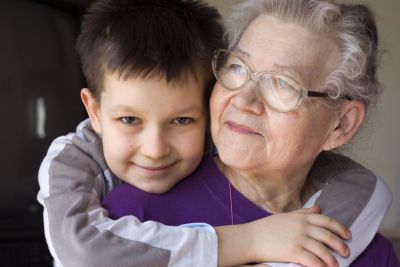How legalised euthanasia would harm families
 NZ Focus on the Family 20 October 2015
NZ Focus on the Family 20 October 2015
Last week ACT MP David Seymour put forward a new bill that will legalise assisted-suicide here in New Zealand if it is drawn from the ballot and then passed into law.
There are a lot of very good reasons to oppose such a change in our laws – not least of which is the fact that in every other jurisdiction that has embarked down this path (and thankfully there are only a small minority of them so far) vulnerable people have been harmed and even killed without their consent.
One important aspect of this debate that doesn’t get anywhere near enough coverage is the negative impact that such a law would have on many Kiwi families.
Earlier this year I was invited to speak at a conference in Adelaide, and while I was there I met several people who are living through the horrific reality that euthanasia has on family life.
One lady had lost her vulnerable elderly mother after she had been unduly influenced by a pro-euthanasia organisation and supplied with information about how to end her own life in a cold and clinical fashion away from the potential life-saving intervention of her children.
Another woman told the truly tragic tale of their young son, who, while away in Europe on an overseas experience had become depressed and was then secretly coached by individuals from pro-euthanasia organisations in online forums about how to take his own life.
Probably the most harrowing of all for me was meeting Tom Mortier, and hearing about how his 64-year-old mother, who suffered from severe depression, had been euthanised without him knowing. He first found out when he received a message at his work asking him if he would he be able to make the morgue arrangements for his deceased mother’s body.
I would argue very strongly that this is not how a death in the family is meant to take place, and any law which enables such a passing, or creates a framework where this is one of the very real risks, is not something good for families or the wider community.
The closing earthly act of the human experience is something that is profoundly important for both the person who is dying, and the family who will remain behind to mourn their passing and celebrate their life.
Although our death is a solitary experience, in another sense it is also something that is not simply our own, but which is also shared and participated in by our entire family.
The person who is dying takes their final journey communing with, and, often, under the care of their family, in one of the most profoundly intimate and, paradoxically, life-giving moments of family life.
A death in the family, especially when it is anticipated, is often a moment of great healing. When a family truly understands that tomorrow may not come for one their members, they are provided with the ultimate reminder to address old wounds, separations and brokenness before it is too late.
Euthanasia, on the other hand, reduces death to a very individualistic and even self-centred event where the communal aspects can be completely stripped from death and replaced with a solitary, isolated and possibly even secret death in the family.
READ MORE: http://www.family.org.nz/our-blog/how-legalised-euthanasia-would-harm-families






